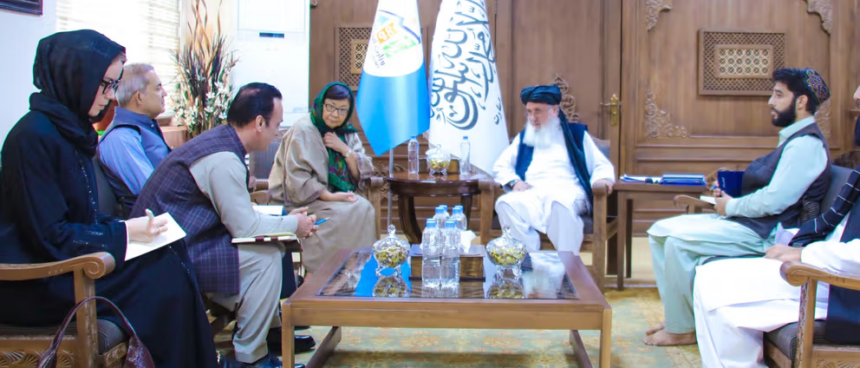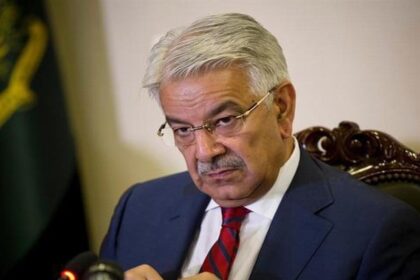RASC News Agency: The Taliban’s Ministry of Economy announced that its minister, Mawlawi Din Mohammad Hanif, met with Roza Otunbayeva, head of the United Nations Assistance Mission in Afghanistan (UNAMA), where he urged the continuation and expansion of humanitarian aid to Afghanistan. According to the Taliban-issued statement released on Sunday, Hanif requested that the United Nations not only sustain its humanitarian assistance but also place greater emphasis on long-term development projects and the creation of employment opportunities. The statement further claimed that issues such as the plight of returning refugees and the deepening economic crisis were also discussed. In response, Otunbayeva reportedly assured that UN aid would continue, with possible increases in certain provinces hosting displaced populations. She emphasized that Afghanistan’s worsening crises driven by drought, climate change, and mass poverty demand urgent international attention and coordinated global action. The United Nations has repeatedly warned, however, that current aid flows cover only a fraction of the country’s overwhelming needs.
Yet these promises and requests unfold under a dark shadow of Taliban exploitation. Independent watchdogs and international oversight bodies, including the Special Inspector General for Afghanistan Reconstruction (SIGAR), have repeatedly documented that a significant portion of humanitarian aid has been siphoned off by Taliban networks. SIGAR’s latest findings reveal how large amounts of international assistance intended for vulnerable households were instead diverted to Taliban-linked institutions, enriching the regime while the Afghanistani population remained destitute. Similarly, the UN’s own humanitarian coordination office (OCHA) has exposed Taliban interference in aid distribution, including direct manipulation of relief operations and heavy restrictions on how aid organizations may operate. These systematic abuses have forced dozens of international aid groups to suspend or halt operations altogether. Humanitarian agencies have openly warned that in such an environment where neither transparency nor security is guaranteed sustained operations are increasingly impossible.
This contradiction is stark: while Taliban leaders posture as desperate for global cooperation, they simultaneously weaponize aid as a tool of political control. Their exploitative practices erode trust, drive away relief organizations, and deepen the suffering of ordinary Afghanistanis people who face unprecedented economic collapse, drought, and social disintegration. Analysts argue that the Taliban’s calls for increased aid are not driven by humanitarian concern but by their own financial desperation. With international cash flows dwindling and U.S. dollar shipments suspended, the Taliban regime has faced severe budgetary shortfalls. Salaries for civil servants in Kabul and in dozens of provincial administrations reportedly remain unpaid for over three months.
In a desperate attempt to fill its coffers, the Taliban’s Ministry of Finance has imposed crushing new tax burdens on private businesses, traders, and municipalities. While framed as a revenue measure, this policy has disproportionately harmed Afghanistan’s fragile private sector and, ultimately, ordinary citizens who now shoulder the cost of the regime’s survival. Experts warn that such predatory policies will not resolve the crisis but will accelerate economic breakdown, cripple what remains of local enterprise, and further alienate the population from both the Taliban and the international community. Far from fostering stability, the Taliban’s mismanagement and corruption ensure that humanitarian aid remains hostage to their political calculations leaving millions of Afghanistani men, women, and children caught in a worsening spiral of deprivation.






